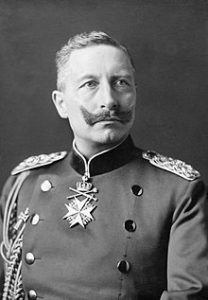History
Norms of Good Governance: Where Do They Come From?
What is it about humans that makes democratic norms stick? What are the traits that facilitate honesty and transparency in administration at the highest levels?

Some countries exhibit good governance while others do not. Even wealthy countries, with strong cultural norms of industriousness and excellence in education, can flounder when it comes to maintaining liberal democracy. For personality psychologists, such as myself, this presents an intriguing question: what is it about humans that makes democratic norms stick? What are the traits that facilitate honesty and transparency in administration at the highest levels? Whatever the answer turns out to be, new insights from personality psychology can help shed some light on how good governance can be both developed and maintained.
Those of us who live in the Anglosphere (USA, Canada, Australia, New Zealand and the UK) might be forgiven for thinking that our societal norms such as individualism, freedom of expression and public service are standard issue for humanity. They aren’t, they are WEIRD. That acronym stands for Western Educated Industrialised Rich and Democratic. And the name fits – WEIRD countries are rare, comprising only about 12% of the global population.
This observation is usually viewed in the scientific literature as a reason to be cautious about extrapolating results from psychological studies because approximately 80% of them are conducted in WEIRD populations whereas less than an eighth of the global human population is WEIRD. But the rareness of WEIRD nations also indicates something more important: it’s difficult to be WEIRD. This seems to be especially true for the democratic aspect of WEIRDness, given that mainland Europe — the cradle of the renaissance, the home of all the coolest coffee machine designs and, ironically, the birthplace of democracy — still has trouble making democracy stick.
This problem is highlighted by Germany’s history over the last century. In 1914 Berlin was one of the most advanced cities on earth, with a thriving academic community (including a pre-Nobel Albert Einstein) and substantially modern infrastructure, such as electric power, an integrated transport system and an extensive telecommunications network. Germany’s industrial excellence meant that she only had to sit tight for a few more decades and market forces would have given her economic domination of Europe, leaving the crusty old British empire in her wake and providing a European counterpart to the mighty USA. But Germany couldn’t manage it because at that point she was Western Educated Industrialised and Rich but not Democratic.

Wilhelm II, German Emperor
This omission allowed Kaiser Wilhelm II to use the industrial might of Germany and its intelligent, hard-working and loyal population as his personal plaything in his grudge against his royal cousins in the UK — a grudge that mutated into WW1. Four years and millions of deaths later Kaiser Wilhelm abdicated and swanned off into a comfortable exile in the Netherlands where he spent his time studying archaeology, chopping down trees and writing memoirs about how he definitely, absolutely, categorically did not cause WW1. The post WW1 chaos in Germany led to WW2, which managed to make the horrors of WW1 seem tame.
With the USA and UK acting as midwife, post WW2 Germany managed to conduct a miraculous rebuild, but after a few decades of not doing anything stupid, she once again pressed the self-harm button. This occurred in 2015 when Chancellor Angela Merkel decided to change Germany forever by allowing the admission of approximately 890,000 ‘refugees’ from nations such as Syria, Albania, Kosovo, Afghanistan and Iraq – a cohort that contained mysteriously few women or old people but lots of fighting age males (e.g., four out of five 16 to 18 year-olds were male, as were three out of four 18 to 25 year-olds. You might think that such a drastic change to Germany’s demography would require a referendum or, at the very least, inclusion in a general election manifesto. But that’s not Merkel’s style so she forced through her open-door policy without testing it at the ballot box. And it’s not hard to see why Merkel didn’t want the people to have a say, as Germany’s newest residents have rewarded her generosity with an epidemic of sex crime, giving the welfare state a pounding. (83% of Merkel’s migrants are jobless and the cost of paying their welfare benefits is estimated at 93.6 billion Euros by 2020.)
If Germany’s ongoing problems with democracy are anything to go by, it shows that for a nation to achieve long-term stability, it is insufficient to have almost the full set of WEIRD ingredients – it needs the full set. This asymmetry in the probability of success and failure in complex systems has become known as the Anna Karenina Principle, after the opening line of Tolstoy’s novel which states: “All happy families resemble one another, but each unhappy family is unhappy in its own way.” And as we have seen in the case of Germany, the Anna Karenina Principle doesn’t just apply to families: it occurs in any situation in which multiple ingredients must be present to produce a positive outcome but only one ingredient needs to be missing to produce a negative outcome.
However, the truism that a nation needs the full set of WEIRD ingredients to avoid fragility replaces one mystery with another, namely where does WEIRDness come from? One possibility is that the personality attributes of admired individuals are instantiated into societal norms. The standard model of personality is known as the Big Five Model (or OCEAN model) because it comprises the dimensions of Openness, Conscientiousness, Extraversion, Agreeableness and Neuroticism. Of these five dimensions, conscientiousness and agreeableness are most likely to be expressed as societal norms. But in the context of nation building it is implausible that conscientiousness and agreeableness differentiate between WEIRD and non-WEIRD nations because German society is famous for its strong social norms connected to reliability, hard work and loyalty, yet twice in twenty years its democratic failures triggered world wars and even today Germany has a leader who rides roughshod over democratically agreed laws on asylum when it suits her.
My hunch is that the crucial personality contribution to WEIRDness lies beyond the Big Five model and is instead captured by the HEXACO model of personality, which stands for Honesty-Humility, Emotionality, eXtraversion, Agreeableness,Conscientiousness and Openness to Experience. It was created by Kibeom Lee of University of Calgary in collaboration with Michael Ashton of Brock University and its chief difference from the Big Five model is that its Honesty-Humility dimension captures individual differences in power-related attitudes: high scorers on Honesty-Humility are less likely than low scorers to coerce others, flout rules or otherwise exploit their position in a self-serving manner. Attitudes that, on the face of it, would seem to be relevant to building a stable, long-lasting democracy. (If you want to assess your suitability for being an honest and humble ruler you can try the HEXACO personality questionnaire here.)
Even a cursory glance at Germany’s troubles as a nation over the last century suggests they stem from a lack of Honesty-Humility, as evidenced by such actions as…ahem…declaring themselves the master race and invading Russia. From the disastrous end to those endeavours, you might think Angela Merkel would have realised the importance of displaying Honesty-Humility towards other nations. But no – in the aftermath of her disastrous 2015 decision, she has sought to unload Germany’s unwanted migrants on Eastern European nations such as Poland, against the will of their own electorates. “That some countries refuse to accept any refugees is not on, that contradicts the spirit of Europe,” she said. “We’ll overcome that.”Regardless of the legal problems with her unilateral diktat, the optics of a German chancellor threatening Poland are – to put it mildly – disturbing.
If my theory is correct, nations which have made a better fist of WEIRDness should also possess norms characterised by high Honesty-Humility. This leads us to the question of how honesty-humility becomes instantiated into a nation’s norms? My hypothesis is a mechanism that is colloquially termed the shining example, or in egghead jargon, social learning. This phenomenon has been shown to cause rapid changes in behaviour in chimpanzees that indicate it provides “a high speed ‘second inheritance’ system that interacts with genetic inheritance to enrich behavioural evolution”.1
Social learning for Honesty-Humility would be sparked by rulers who consistently behaved honestly and humbly, with the result that their attitude comes to be regarded as something to aspire to. As a British person I should probably cite examples from my own nation, given that it is the mother of parliaments, but when it comes to making a success of democracy, we Brits are left in the shade by the achievements of the USA, which is in many ways our younger, smarter and better-looking cousin.
As articulated a few weeks ago by Kibeom during a paper session I attended at the European Conference on Personality (beautifully hosted by the University of Zadar), a cardinal marker of high scores on Honesty-Humility in a politician is a refusal to exploit a position of power for personal gain. This brings us to perhaps the single greatest example of Honesty-Humility in the context of democratic nation-building, namely George Washington’s resignation as commander-in-chief following his victory over the British in the American Revolutionary War in 1783. As the victorious war leader, with powers that were equivalent to a dictator, Washington could have exploited his position by crowning himself as an emperor or king. Instead, he stepped down, declaring that: “Happy in the confirmation of our Independence and Sovereignty, and pleased with the opportunity afforded the United States of becoming a respectable Nation, I resign with satisfaction the Appointment I accepted with diffidence.”Washington’s resignation was an essential element in the US’s transformation into a stable democracy, since it helped establish the principle of civilian rule over the US military. And it didn’t just shape the US national psyche – it even attracted the admiration of his former enemy King George III, who described Washington as “the greatest character of the age”. The precedent for honesty and humility in US public office established by Washington in 1783 was reinforced in 1797 by his refusal to stand for election a third time, thereby establishing the principle, eventually enshrined in the 22ndAmendment, that two terms was the maximum a US president could serve.

Washington’s shining example of honesty and humility has since been followed by public servants across US history, but it was perhaps most famously embodied by his presidential successors Abraham Lincoln and Franklin D. Roosevelt. The former’s Gettysburg Address lasted a mere 272 words, but in it Lincoln set out norms that formed a blueprint for egalitarian democracy, ending it with the defining phrase “government of the people, by the people, for the people.” Likewise, in the early years of WW2, Franklin D. Roosevelt could have taken advantage of the UK’s desperate need for war materials by hiking up prices or making punishing territorial demands, but instead he oversaw the instantiation into US law of the Lend-Lease scheme, formally titled “An Act to Promote the Defense of the United States”. He explained its rationale in his characteristically humble manner: “Suppose my neighbor’s home catches fire, and I have a length of garden hose four or five hundred feet away. If he can take my garden hose and connect it up with his hydrant, I may help him to put out his fire. Now, what do I do? I don’t say to him before that operation, “Neighbor, my garden hose cost me $15; you have to pay me $15 for it.” What is the transaction that goes on? I don’t want $15—I want my garden hose back after the fire is over. All right. If it goes through the fire all right, intact, without any damage to it, he gives it back to me and thanks me very much for the use of it. But suppose it gets smashed up—holes in it—during the fire; we don’t have to have too much formality about it, but I say to him, “I was glad to lend you that hose; I see I can’t use it any more, it’s all smashed up.” He says, “How many feet of it were there?” I tell him, “There were 150 feet of it.” He says, “All right, I will replace it.” Now, if I get a nice garden hose back, I am in pretty good shape.”Lend-Lease was instrumental in saving the UK, providing approximately 21 billion dollars of aid and was described by Winston Churchill as “the most unsordid act in the history of any nation”.
Viewed as whole, these three illuminating examples of honest and humble behaviour by US presidents show it is plausible that an individual ruler’s personality may rub off on a nation, which in turn might help explain how the USA has built a democracy that has proved stable over centuries – something that, as we have seen, even advanced nations like Germany cannot manage. I believe it also explains why the EU is struggling – whereas the USA has over centuries built good governance thanks to the examples of individuals like Washington, Lincoln and Roosevelt, the EU hasn’t.
This problem was recently articulated with brilliant clarity by Pete North, a British campaigner for Brexit, in a Twitter thread. Applied to the present context, North’s analysis suggests that if the EU is to be a stable democracy that lasts centuries, in the style of the USA, all its constituent states need to be WEIRD. If one is not, then as per the Anna Karenina Principle, the whole thing falls apart. Moreover, North argues that trying to impose good governance on a nation is impossible – it has to develop naturally from within: “Good governance is not something that happens overnight. It is endemic to the culture. We might not appreciate it but we are indoctrinated with certain expectations and standards we uphold and that accounts for part of our culture. In the far east you can see them building infrastructure at an impressive rate but it’s unsurprising how rapidly it falls into disrepair. They have shown us they can build, but not maintain. Maintaining comes from established civic governance. The same applies to parts of Europe – particularly Greece and Italy where political dysfunction and corruption is the norm, and as well meaning as the EU may be, good governance cannot be grafted on to cultures. It has to evolve at its own pace.”
In my opinion, this process requires exposure over centuries to honest and humble exemplars such as Washington, Lincoln and Roosevelt, allowing Honesty-Humility gradually to become a societal norm. If my theory is correct, then the EU is doomed to be democratically fragile because its exemplars are far from the honest and humble Washingtonian ideal, what with their disregard for democracy and their penchant for enormous, tax-free salaries, bloated expense accounts and gold-plated pension pots. In fact, given the spectacular way in which greedy, self-serving behaviour is paying off for the EU’s big wigs, we can’t expect the people of the EU to view Honesty-Humility as anything other than an Anglosphere eccentricity, like afternoon tea, team sports and politeness. Oh yes, and of course democracy.
Adam Perkins is a Lecturer in the Neurobiology of Personality at Kings College London and is the author of the book The Welfare Trait: how state benefits affect personality. Follow him on Twitter @AdamPerkinsPhD.






